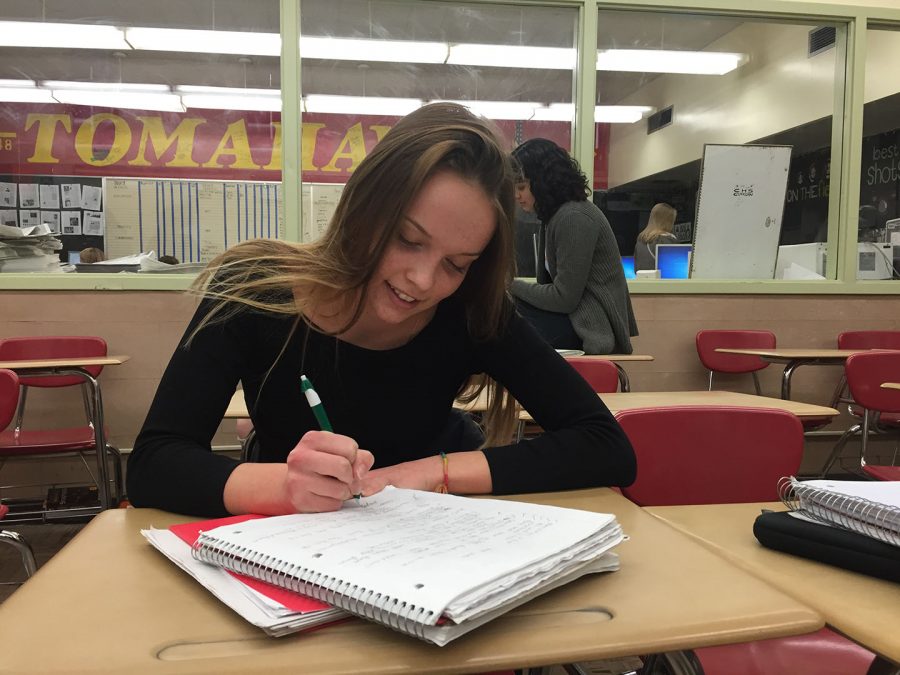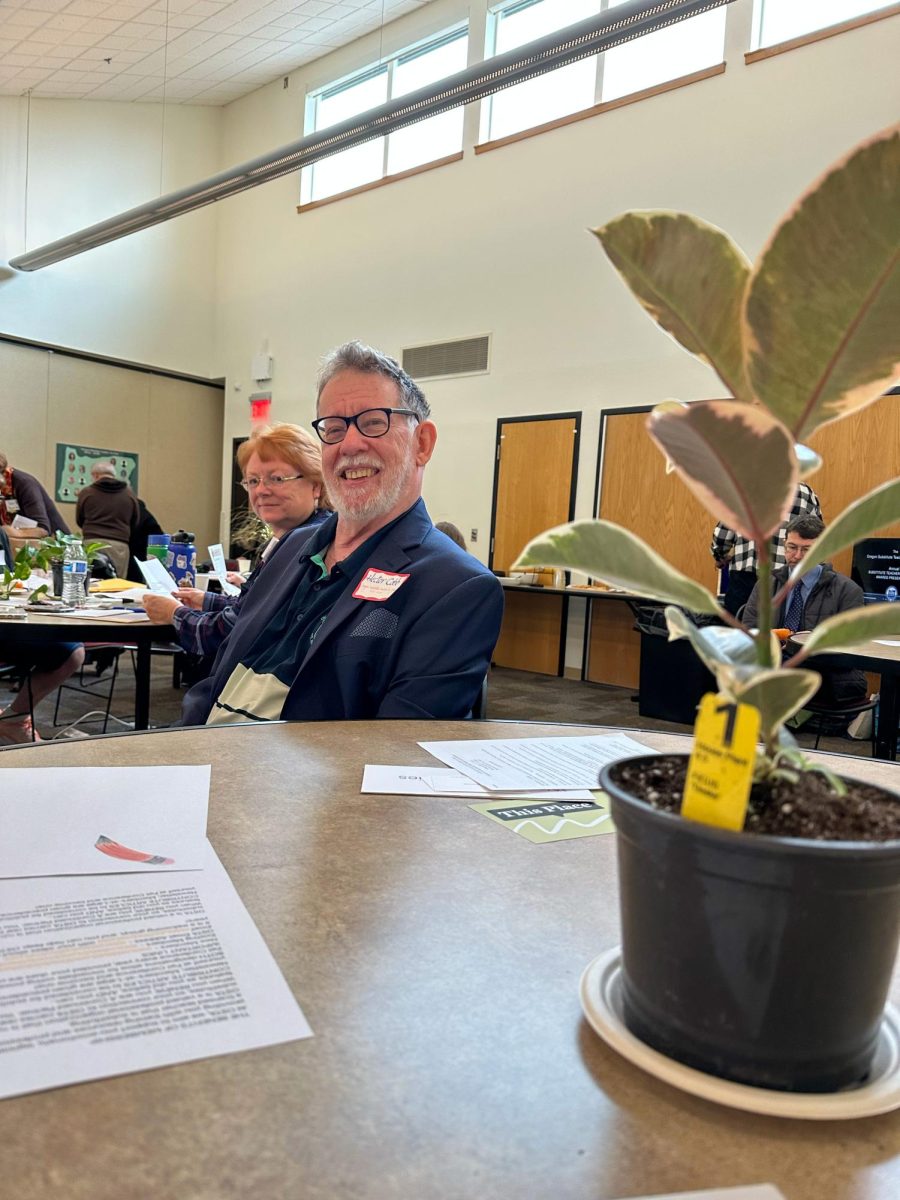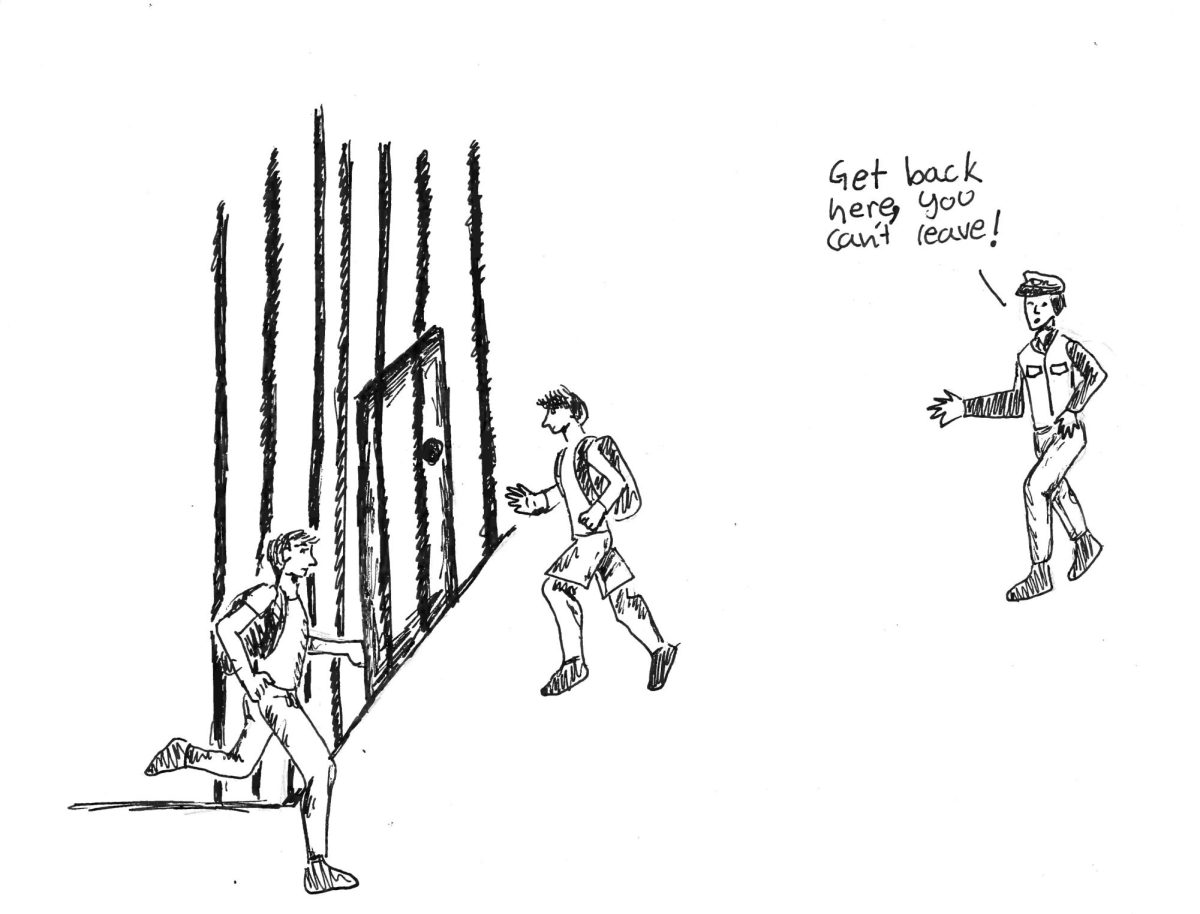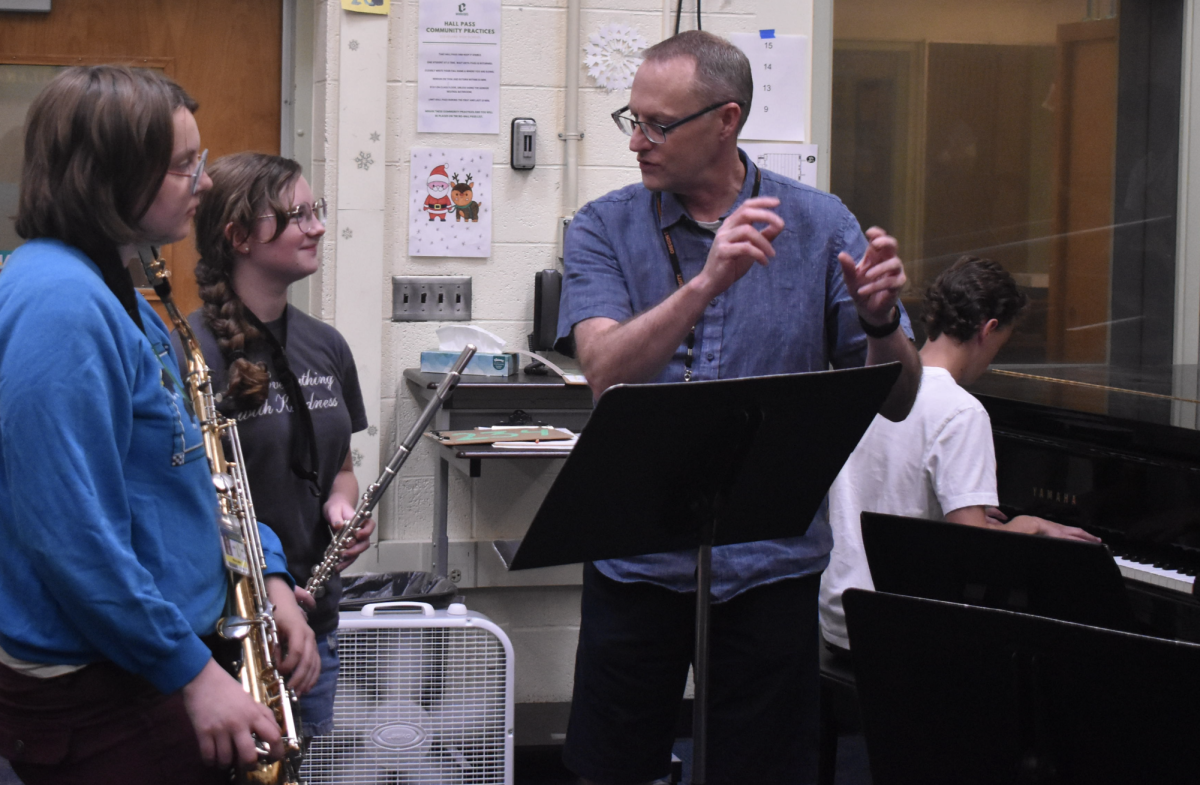Homework Summit set to get everyone on same page
Clarion photo Cyrus Lyday
A Cleveland student does her homework
April 13, 2016
Teachers give it. Parents pester about it. Students love to hate it. “It” is homework.
In high school, homework is expected. As a full I.B. student, I am very familiar with the various types of homework assigned: readings, worksheets, large projects, essays, lab write-ups, and studying for exams. However, now the system may be changing.
On April 19 at 6:30, the library will be open for students, teachers, and parents to talk about the effectiveness and purpose of homework. At the homework summit, there will most likely be articles to read and a short film to watch, but the majority of the activity will be discussion-based.
The idea of holding a homework summit at Cleveland originated from a discussion between John Golden, instructional specialist, and Tim Graham, history teacher.
“We asked, ‘What is it doing for our students and what is it doing to our students?’” said Golden. “Our students are losing sleep, our students are having anxiety and pressure, our students are cheating, our students are copying. I think that is a result of homework that might not be meaningful.”
Graham thinks that for the development of teenagers, physical exercise and other activities should be the priority. “I am not educated in psychology or therapy, but I see a lot of harm in too much useless homework and I see a lot of benefit in having kids do other things.”
At the summit, Golden hopes to have representation from three constituencies: students, parents, and teachers, as they are the ones most affected by the repercussions of homework.
“Students are having problems trying to balance all the homework. Parents want to make sure that their children are being prepared for college and work but they don’t want them too stressed. Teachers feel pressure to assign homework in order to move through curriculum and often want to teach a course that is considered to be rigorous,” Golden said.
After reading about the value of homework and how it lends to academic success, Graham found that few types of homework are actually effective. According to the data he found, reading as well as projects that involve the students’ own interest are the highest value of homework.
One issue may be that teachers are handing out homework to students without realizing their overall course load. “Teachers work in such isolation that we don’t always know what other people are doing. We can have a tendency to think that our class is the only class a student attends. For that reason, we don’t think about homework and the actual load,” Graham said.
“A lot of parents just assign homework subconsciously because that’s the way they did it or they think the parent expects them to … . Teachers should always be able to explain why they’re doing/assigning something and I don’t know if all teachers can do that,” said Graham.
Golden believes we may need to rethink what type of work is done at school versus at home.
“Students in high school have to have some homework. There is a component to it that has to happen. World languages, math, and music require constant repetition and for language arts you need time to read. On the other hand, I think there is some learning that happens at home that should actually be taking place in the classroom.” To cite an example, he discussed his own daughter’s experience at Grant High School where she had to teach herself how to write a lab-report at home.
Golden and Graham are not positive about the solution, which is why they decided to hold the summit and start the conversation. They hope to set some potential policy guidelines and recommendations for what makes effective homework. In the fall, they want teachers and administration to weigh in on the policies.
Golden believes this issue is somewhat of an elephant in the room. “We all know it’s there, we know it’s having an effect, but we kind of agree not to talk about it. I think it’s time to talk about it.”














